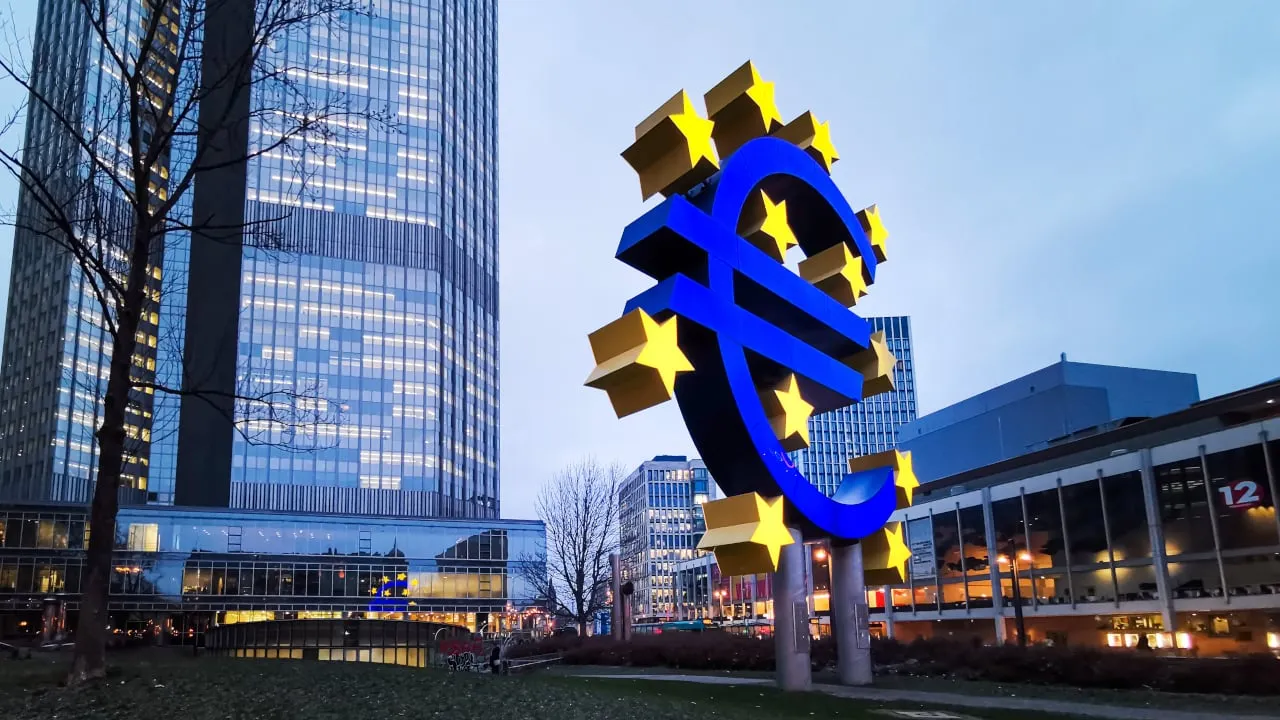The European Central Bank (ECB) dropped the interest rate for its deposit lending facility by another 25 basis points on Thursday, reaffirming its newly dovish monetary policy stance—and Bitcoin and major stock market indices are slightly up following the news.
The central bank expects core inflation to rapidly decline over the next two years. That said, its latest projections for economic growth are now weaker than they were in June, and economic activity remains “subdued” due to weak private consumption and investment.
Joe Tuckey, Head of FX Analysis at Currency Specialists, told Decrypt that the latest cut was in line with market expectations.
“The statement reinforced the data-dependent path, confirmed that inflation data is broadly in line with expectations, and lowered economic forecasts,” he said. “The EUR/USD remains just above chart support at 1.1012.”
The euro strengthened slightly against the U.S. dollar last month after Federal Reserve Chairman Jerome Powell suggested that he would begin lowering interest rates.
With the Fed’s next official meeting just a week away, both Bitcoin and major stock market indices are bouncing back from their slumps late last week, with the leading cryptocurrency reclaiming $58,000 on Wednesday. It's now trading for slightly under that mark, while the S&P 500 and Nasdaq are both up slightly on the day as of this writing.
Generally speaking, lower interest rates are favored by markets, since they mean cheaper borrowing costs for financing investments. It also means more “money printing,” in which case scarce assets like Bitcoin, gold, and real estate will appreciate against the debasing currency.
#Bitcoin went to $69,000 in 2021 when interest rates were 0.25%$BTC went to $74,000 during the fastest rate hike and tightening in history
And now central banks are starting to cut interest rates again 👀💥 pic.twitter.com/K6MxEtU93e
— Quinten | 048.eth (@QuintenFrancois) September 12, 2024
That said, some analysts think higher interest rates in Europe and the U.S. could crush markets in the short term by interfering with the yen carry trade. By granting the yen relative strength against dollar and euro, investors borrow from Japan to buy USD-denominated assets.
BitMEX co-founder Arthur Hayes predicted in August that if this bearish theory plays out, the Federal Reserve will expand its balance sheet and rescue the market with more liquidity. “They will ramp up the money printer and dramatically increase the money supply,” he said at the time.
Should that “dump-before-pump” prediction play out, it would map closely with a common trend for Bitcoin every September—similar to the “September Effect” seen on Wall Street—before its seasonal pump in the fourth quarter (aka “Uptober”).
“Bitcoin’s price was up slightly last September, and October has historically had the highest average returns,” Grayscale Managing Director of Research Zach Pandl told Decrypt this month.
Edited by Andrew Hayward

